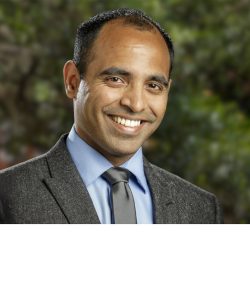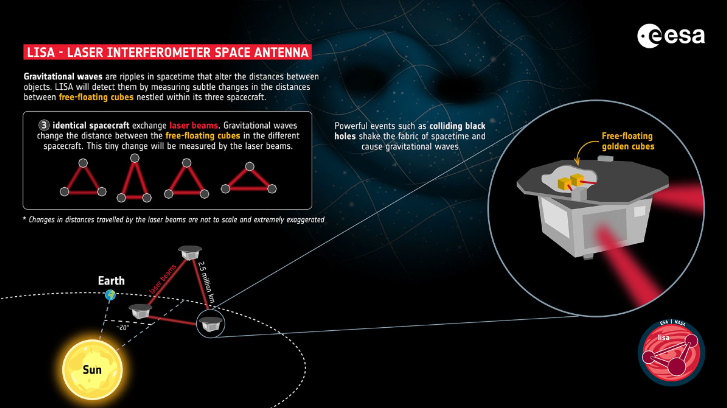In MAEBio, we tackle a broad diversity of biological topics, working at length-scales as large as the human body, as small as single molecules, and at all scales in between. We investigate how living systems sense, respond to and operate in their mechanical environments. As innovators, we are continually developing new tools and approaches to advance our fields.
Areas of Excellence
- Biosensors and Medical Devices
- Biotransport
- Cell mechanics, mechanobiology, and biotribology
- Clinical Biomechanics and Rehabilitation
- Fundamentals of Biomechanics
- Soft Matter and Biophysics
- Systems and Synthetic Biology
- Tissue Model Engineering and 3D Bioprinting
Facilities & Laboratories
Herbert Wertheim Laboratory for Engineering Excellence – Completed in 2021 through a $300 million public-private collaboration, this 84,000-square-foot building is a hub for biotechnology research and education in the campus core. This flagship facility houses cutting-edge research and collaborative spaces for the majority of MAEBio laboratories:
- AI Biomechanics Laboratory
- Biodesign Laboratory
- Bio/Materials Tribology Laboratory
- Florida Advanced Manufacturing and System Integration Laboratory
- Integrative Mechanobiology & Biophysics Laboratory
- Microfluidics and BioMEMS Laboratory
- Neuromechanics of Mobility Laboratory
- Nontraditional Manufacturing Laboratory
- Soft Matter Research Laboratory
- Soft Tissue Mechanics and Drug Delivery Laboratory
- SYstems / SYnthetic Biological Optimization, Regulation, or Generation Systems Laboratory (SYBORGS)
Biorheology Laboratory – As part of the Anton-Paar VIP Research program, this facility houses three Anton-Paar rheometers: the MCR-702 with twin-drive capabilities, one MCR-92, and one MCR-72 for education and outreach activities. Users of this facility perform experiments at no charge; we have accommodated more than 100 users since the lab was established in 2017. Prospective users can reach out to Dr. Thomas E. Angelini (t.e.angelini@ufl.edu)
Gary J. Miller, PhD Orthopaedic Biomechanics Laboratory – An 800-square-foot computational space that is outfitted with computer workstations and collaborative space for > 20 student and research fellows. An adjoining, 400-square-foot fabrication room has benches and equipment for building hardware and sensors.
Human Movement Biomechanics Laboratory – A new 954-square-foot experimental facility for human movement analysis is located in the MAE-B building.
Associated Centers & Institutes
- Interdisciplinary MicroSystems Group (IMG)
- Emerging Pathogens Institute (EPI)
- McKnight Brain Institute
- Nanoscience Institute for Medical and Engineering Technology
- UF Health Cancer Center
Group Email
Related Faculty

After obtaining my Bachelor’s in Engineering in 2002 with a minor in Mathematics, at the age of 19, I received a National Science Foundation Graduate Research Fellowship with which I obtained my Master’s from the University of Cambridge in 2004 and my PhD at the University of Groningen in 2005 at the age of 21, becoming the youngest PhD in The Netherlands.…

Dr. Allen’s research focuses on identifying biomechanical targets that can guide interventional decisions in rehabilitation and device design for individuals with ambulatory impairments. This work leverages musculoskeletal modeling and machine learning techniques to identify deficits in lower-extremity biomechanics and to predict how different interventions or devices will improve ambulatory function. Dr. Allen and collaborators have recently identified several potential biomechanical targets for reducing fall risk and improving mobility in older adults and stroke survivors that her group is following up in NSF and NIH funded projects.…

Professor Angelini received his Ph.D. in 2005 from the University of Illinois. His research interests include collective cell motion, mechanical instabilities in tissue cell assemblies, bacterial biofilm physics, soft matter physics, biomolecular self-assembly, and tribology of soft matter interfaces.
Education
Ph.D., 2005, University of Illinois
Professional Memberships and Fellowships
American Physical Society, Member
Society of Tribologist and Lubrication Engineers, Member
Teaching Interests
Soft Biological Mechanics, Soft Tissue Mechanics, Data Measurement and Analysis, Vibrations.…

Professor Banks has been active in orthopaedic and joint mechanics research his entire career. He is a member of several professional societies including ASME, the Knee Society, the American Society for Biomechanics and the Orthopaedic Research Society. Professor Banks served as President and annual conference host for the International Society for Technology in Arthroplasty in 2013, and remains a member of the Board of Directors.…

Dr. Chen received her Ph.D from the Georgia Washington University in 2003 and jointed University of Florida in 2006. She was a recipient of DARPA Young Faculty Award in 2010 for “Predicting materials properties from their microstructural architecture”, DOE Early Career Award in 2011 for “Prediction of thermal transport properties of materials with microstructural complexity”, and nine US National Science Foundation Awards for multiscale studies of mechanics of advanced materials and thermal transport in heterostructures from 2009 to 2023.…

Dr. Costello’s research focuses on understanding the role of movement biomechanics and physical activity in musculoskeletal health, with an emphasis on knee osteoarthritis. This work utilizes motion capture, wearable sensors and machine learning to examine how time-varying, multidimensional joint loads experienced during human movement contribute to disease progression.
Dr. Costello joins us from a NIH F32 & T32 funded postdoctoral fellowship in the Department of Physical Therapy & Athletic Training at Boston University and the Section of Rheumatology at the Boston University School of Medicine.…

Prof. Warren Dixon received his Ph.D. in 2000 from Clemson University. He worked as a research staff member and Eugene P. Wigner Fellow at Oak Ridge National Laboratory (ORNL) until 2004, when he joined the University of Florida in the Mechanical and Aerospace Engineering Department, where he is now a Distinguished Professor, Dean’s Leadership Professor, and Department Chair.…

Education
- PhD Mechanical Engineering, University of Florida 2013
- MS Mechanical Engineering, University of Florida 2006
- BS Mechanical Engineering, University of Florida 2004

Professor Fan joined UF in 2003. His research focus is to develop microfluidics and BioMEMS technologies and apply them to biomedical applications. Microfluidics involves device fabrication and manufacturing, study of fluid behavior in microscale, and exploiting the devices for a variety of applications including point-of-care testing, environmental monitoring, and detection of pathogens in the field.
Education
Ph.…

Professor Greenslet received her Ph.D. in 1996 from Utsunomiya University in Japan. Her research interests include Magnetic field-assisted finishing; Surface functionalization and characterization; Ultra-precision surface finishing of optics; Surface and edge finishing of capillary tubes, catheter shafts and stents; and Medical device development.
Education
Ph.D., 1996, Utsunomiya University, Japan
Professional Memberships and Fellowships
CIRP (International Academy for Production Engineering), Fellow 2023
The American Society of Mechanical Engineers, Fellow 2015
Society of Manufacturing Engineers, Fellow 2016
SPIE (International Society for Optics and Photonics), Member
Japan Society of Mechanical Engineers, Member
Teaching Interests
Manufacturing engineering, Fundamentals of production engineering, Nontraditional manufacturing engineering.…

After 20 years in the robotics industry, Mike came back to UF to teach the design courses.
Education
1991 Ph.D. University of Florida
1988 MSME University of Florida
1985 BSME University of Florida
Professional Memberships and Fellowships
The American Society of Mechanical Engineers, Member
Teaching Interests
Design, Kinematics, Statics, Numerical Methods
Research Interests
Kinematics, Statics, Screw Theory

Chase Hartquist is an Assistant Professor in the Department of Mechanical and Aerospace Engineering at the University of Florida. He obtained his Ph.D. in Mechanical Engineering at the Massachusetts Institute of Technology, where he investigated the mechanics of fracture in soft network materials. He earned his B.S. and M.S. in Mechanical Engineering from Washington University in St.…

Dr. Yong Huang is a professor of Mechanical and Aerospace Engineering, Biomedical Engineering, and Materials Science and Engineering. His research interests are two-fold: 1) processing of biological and engineering materials for healthcare/energy applications, and 2) understanding of dynamic material behavior during manufacturing and process-induced damage or defect structures. He served as the Technical Program Chair for the 2010 American Society of Mechanical Engineers International Manufacturing Science and Engineering Conference (ASME MSEC 2010) and the 2012 International Symposium on Flexible Automation (ISFA 2012).…

Amor A. Menezes is an Associate Professor of Mechanical and Aerospace Engineering at the University of Florida, with affiliate appointments in Biomedical Engineering, Agricultural and Biological Engineering, Genetics, and Chemical Engineering. He is a member of the National Academies of Sciences, Engineering, and Medicine Standing Committee on Advances and National Security Implications of Transdisciplinary Biotechnology.…

Education
Ph.D., 2006, University of Maryland
Research Interests
Micro/nanoscale transport and nanotechnology for energy science and health applications; nanoengineering of functionalized membranes for energy conversion and storage and filtration/separation applications; heat and mass transfer in micro/nanostructures; microfluidic reactor platforms for fundamental energy research and reaction engineering; portable power
Professional Memberships and Fellowships
American Association for the Advancement of Science, Member
American Society of Heating, Refrigeration and Air-Conditioning Engineers, Member
The American Society of Mechanical Engineers, Fellow 2020
Institute of Electrics and Electronics Engineers, Member

Jing Pan received his PhD from Purdue University in 2017. His research focuses on developing nanoscale machineries for biotechnology applications. He conducted his postdoctoral research at Stanford University School of Medicine, where he demonstrated translational impact of his work in novel biosensors and molecular diagnostics.
Education
Postdoc, 2019 Stanford University
Ph.D, 2017 Purdue University
B.S, 2011 Xi’an Jiaotong University
Teaching Interests
Heat and Mass Transfer; Classical and Statistical Thermodynamics; Modern Optics and Imaging System Engineering; Biodesign
Research Interests
Macromolecular Machines; Directed Evolution; Self-assembly and self-organization; Bio-nanotechnology; Synthetic Biology; Medical Technology.

Dr. Umesh Persad obtained his Ph.D. in Engineering Design from The University of Cambridge (Cambridge Engineering Design Centre), with a special focus on Inclusive and Healthcare Design. His areas of interest include Engineering Design and Product Development, Applied Artificial Intelligence, Educational Innovation and Technology, and Academic Strategy and Leadership. Dr. Persad previously held the position of Associate Professor and Head of Department of the Mechanical Engineering, Manufacturing and Entrepreneurship (MME) Department at The University of Trinidad and Tobago (UTT), West Indies.…

Dr. Sarntinoranont grew up in Starke, Clermont and Gainesville, FL. Her degrees are in Mechanical Engineering with an emphasis in Bioengineering. Dr.S’s research is driven by a vision to develop engineering tools for patient-specific drug therapy. Her lab is developing image-based computational models that predict flows and transport within the brain, spinal cord, tumors and bioreactors.…

Professor Spearot received his Ph.D. in 2005 from the Georgia Institute of Technology. His research broadly includes the use of atomistic and mesoscale simulation techniques to study the mechanical and thermodynamic properties of materials, with particular focus on the behavior of interfaces. He was awarded the NSF CAREER Award in 2010 and was named 2020 Teacher of the Year in the Department of Mechanical & Aerospace Engineering.…

Professor Xin Tang received his Post-doctoral training from Harvard University and Ph.D. from University of Illinois at Urbana-Champaign. His research centers at the interface of engineering, physics, chemistry, and biology. His lab studies cell and molecular mechanics in cancer, cardiovascular system, and neurons; unconventional mechano-electrophysiology; quantitative in vivo/vitro functional bio-imaging; AI/ML-powered bio-nanotechnology; and development of new biophysical tools to probe biological function/structure.…



